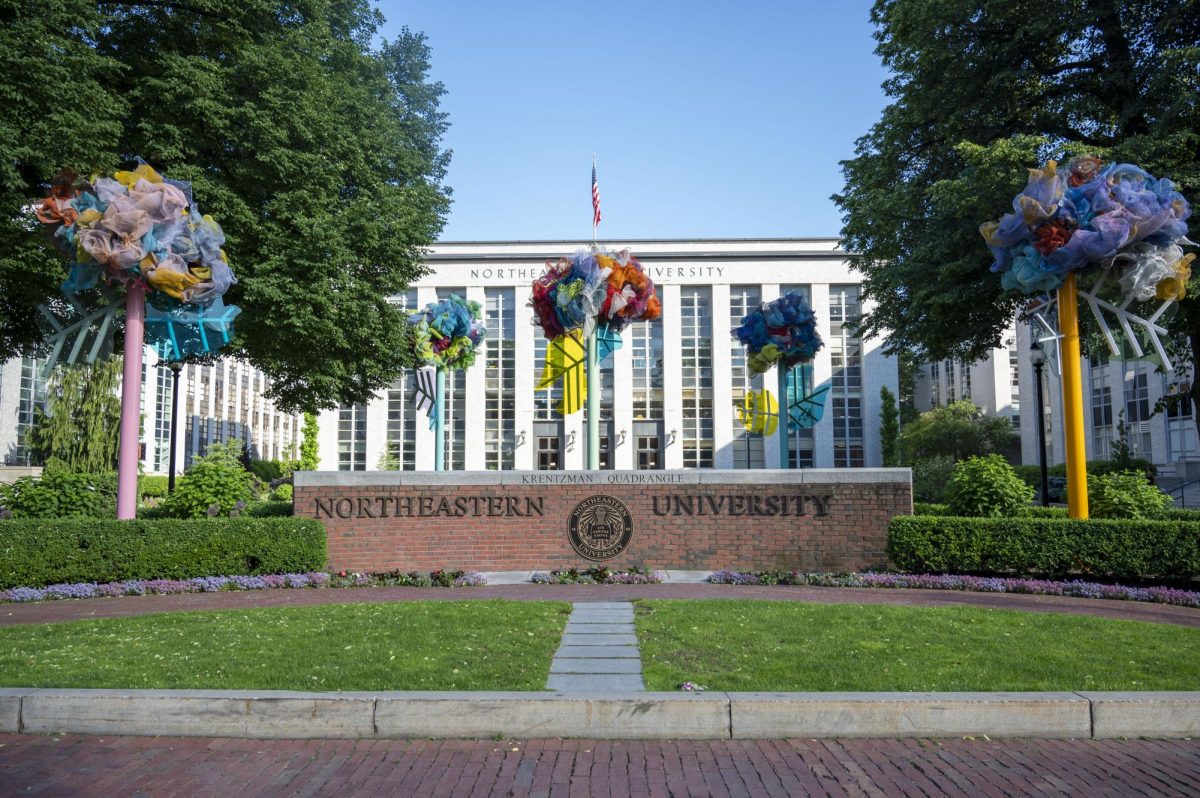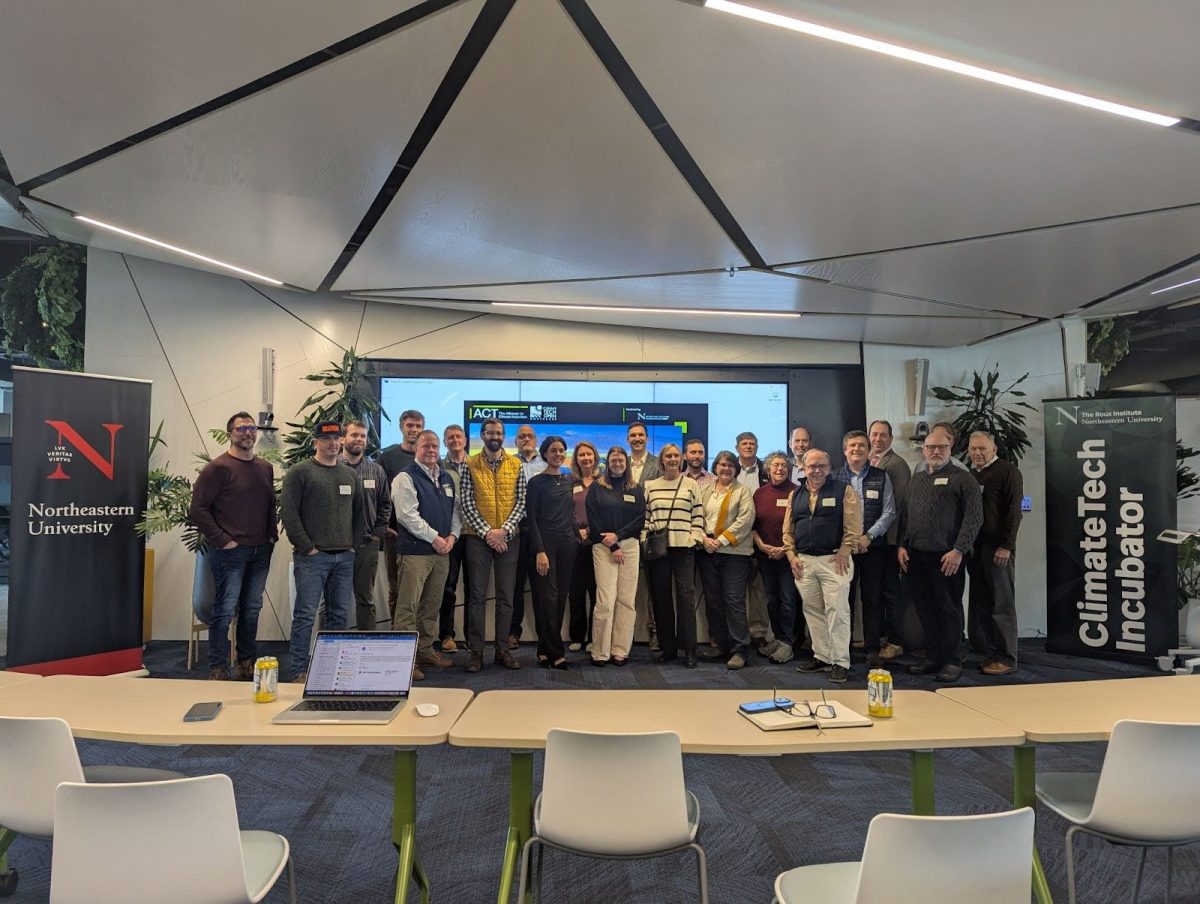By Zac Estrada, News Staff
Could Northeastern’s stringent club approval process be stifling student involvement?
Middler computer science major Greg Kerr said the process is “nightmarish,” after spending most of the current semester trying to start a club.
At Monday’s Student Government Association (SGA) meeting, Kerr appeared during open discussion time to call the university’s policies “burdensome,” decrying the “red tape” he’s faced.
“Based on my experience at other universities, I don’t see the same level of student involvement at Northeastern,” Kerr said in an interview with The News. “How often do you see students in front of Shillman Hall doing something meaningful?”
Kerr has worked since last fall to start a chapter of the Young Americans for Liberty club at Northeastern, by officially submitting an application through the Office of Campus Activities.
While on co-op last winter, Kerr became involved with a Young Americans for Liberty chapter at the University of California, San Diego. The group of college-aged Libertarians sets up campus and community events promoting grassroots efforts to keep government bodies in check.
Kerr’s frustration with the eight-step approval process started with a request to set up a table and recruit members in order to reach the 12-member minimum required by the university for club approval. He said Northeastern’s rules prohibited him from setting up a table until he received tentative approval, the sixth step of the process and the final step before meeting with SGA’s Student Involvement Board to get their O.K. on the club.
“I can’t see a good reason why clubs aren’t allowed to table to get members before they’re approved,” Kerr said.
He also said most schools he’s seen require as few as five members in order for university officials to officially recognize the club.
Mallory Brown, SGA’s vice president of student involvement, said the amount of time for a club going from an idea to earning official approval varies greatly. She said the most time-consuming part of the process is the first six steps.
Those steps constitute first attending a New Student Group workshop, pinning down a full-time faculty member to serve as a club advisor, creating an organization proposal and membership roster and submitting letters of support from either the faculty advisor or dean if the club is affiliated with a college. After these five steps are completed, a new club goes before the Campus Activities office to earn tentative recognition.
It’s only then that Brown and the currently eight-member Student Involvement Board receive the application, meet with the prospective club leaders and award full recognition.
“If a student has their act together and has members and letter from a faculty member, they could be done in a week, or it could take a semester,” Brown said.
Kerr has completed the first six steps and earned tentative recognition. That level allows his club to solicit members and reserve three meeting spaces, but no large venues, Brown said. She said a club can hold tentative recognition status for two consecutive summers.
Brown has 13 clubs with tentative recognition waiting to meet with board members and earn official approval, a number she said is unusually high.
“We usually have a steady flow but for some reason they kind of flooded in after Spring Break,” she said.
Brown said the university, not SGA, dictates the approval process, even though she and the Student Involvement Board get to voice some input to Northeastern officials.
Northeastern’s Director of Campus Activities Jason Foster was not made available for comment to The News.
“The steps are in place to ensure adequate student interest, appropriate campus support from an office outside of ours and that the group has something unique to offer student life,” Director of Communications Renata Nyul said Wednesday in an e-mail to The News.
When Kerr appeared before SGA, some members attributed tight space constraints at the university as severely impacting room for clubs to conduct activities.
“It costs a lot of money to keep rooms open, we’re already maxed out,” SGA Chief of Staff Michael Splain said Monday. “We need to do the work to open up additional rooms.”
SGA President Ryan Fox told Kerr there were pieces of the process that could be simplified, but several issues, including space constraints, would need to be addressed.
“We’re short on tabling space,” Fox said. “If you go to book a table tomorrow, you won’t find one.”
Kerr said he isn’t satisfied with Fox placing blame on space constraints keeping the approval process faulty.
“He basically said, ‘The process is what it is,’” Kerr said. “I feel like saying, ‘Why don’t you start a club and get back to me.’ Fox should be rallying the cause. It’s like a pity story. Just because other schools have the space doesn’t mean we can’t give groups the same rights.”
While Kerr feels having on-campus meeting space is more convenient, he believes many clubs, including his, can find alternatives in the interim.
Kerr said he also takes issue with members who feel the process needs to be strict in order to protect against clubs abusing access to the Student Activity Fee.
“I have a grant right now that I’m waiting to use,” he said. “I don’t need access to the fee. If you have 12 members, I don’t think you’ll need access to it.”
Kerr said he hopes the process will be simplified in the future to no more than five steps, with a separate process for clubs who wish to access Student Activity funds.
Brown said she has already extended an offer to Kerr to apply to be on the Student Involvement Board as a member-at-large, joining the senators currently comprising the team.
“I was extremely happy he came in front of senate,” Brown said. “It was definitely good for the board to hear those things, some of which we’ve been discussing and working on.”
Kerr said he’ll stick out the approval process, which could be completed in the next few weeks. But he’s convinced the university needs to ease the regulations in order to spark more student involvement.
“We need to rewrite the rules,” Kerr said Monday. “I don’t see how student life can flourish.”
Correction: An earlier edition incorrectly attributed a quote to SGA Vice President for Academic Affairs Michael Sabo. The quote was, in fact, from Chief of Staff Michael Splain.








